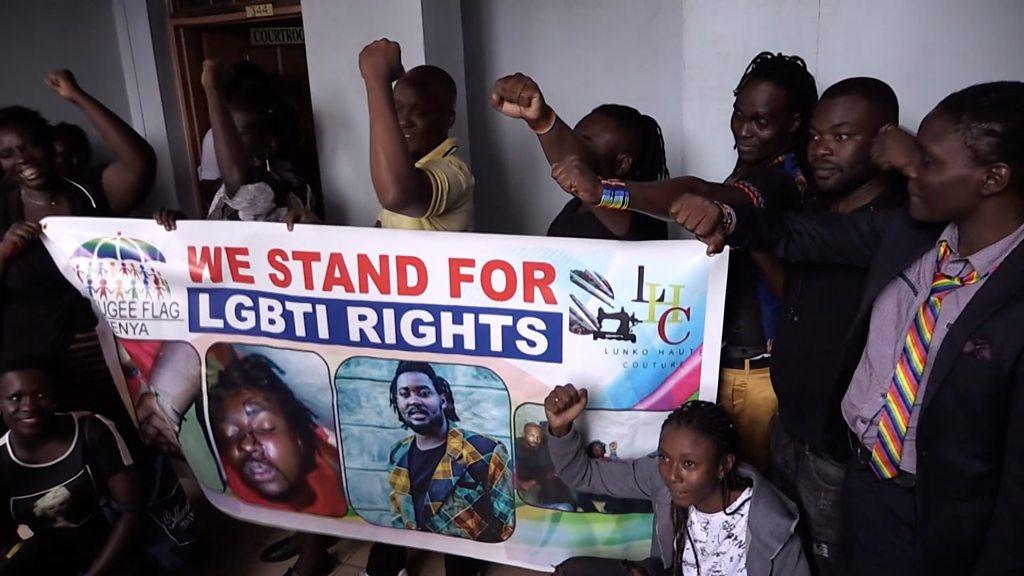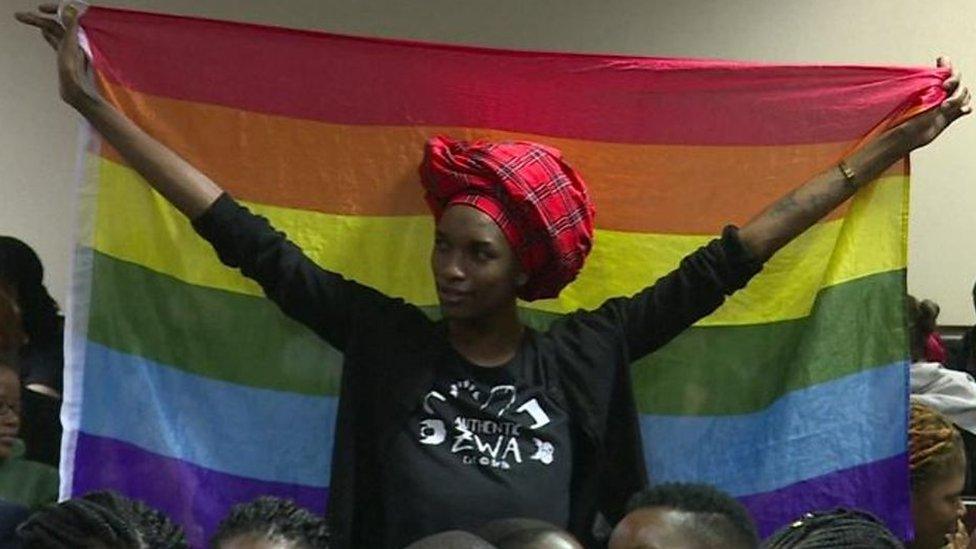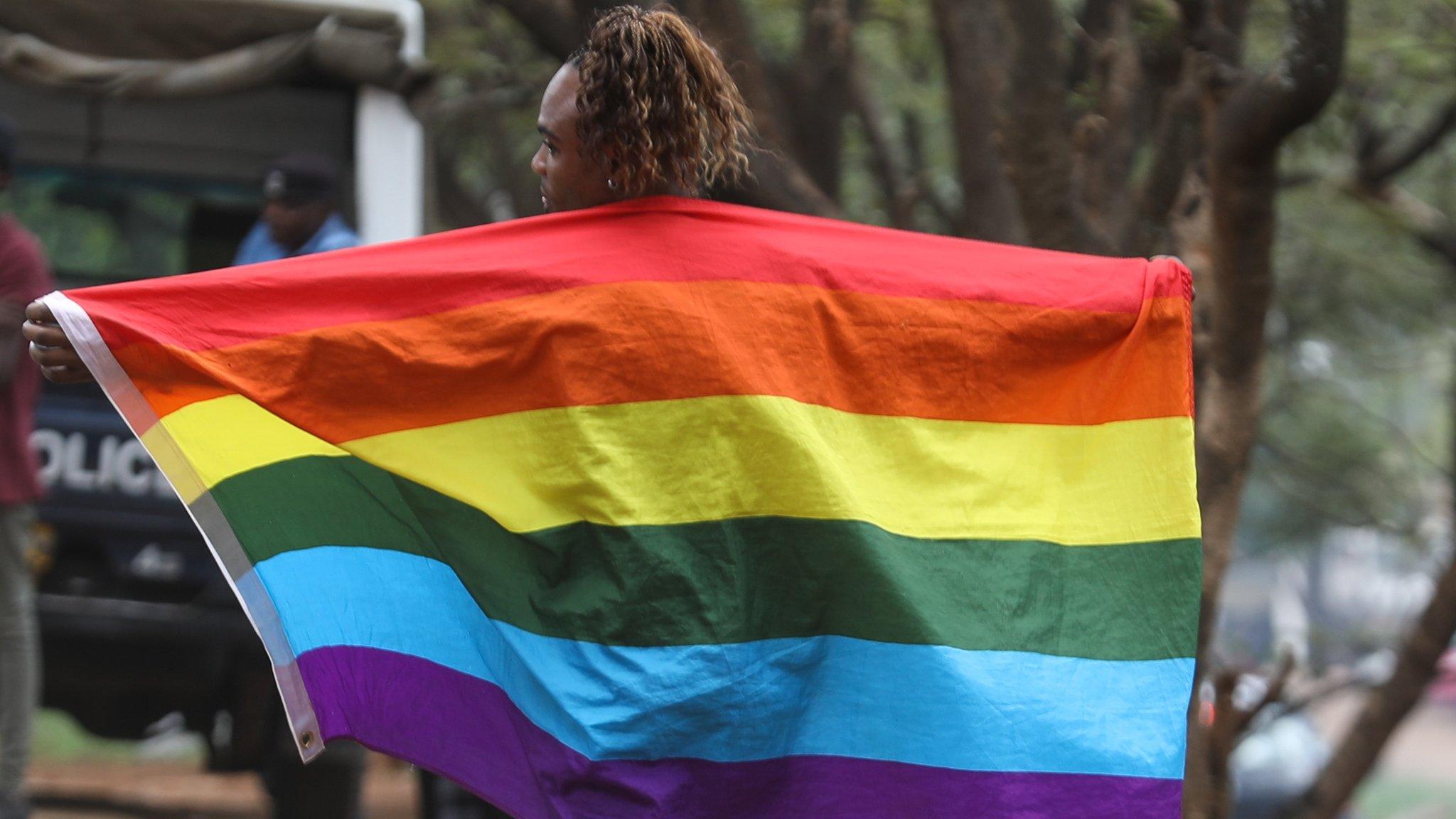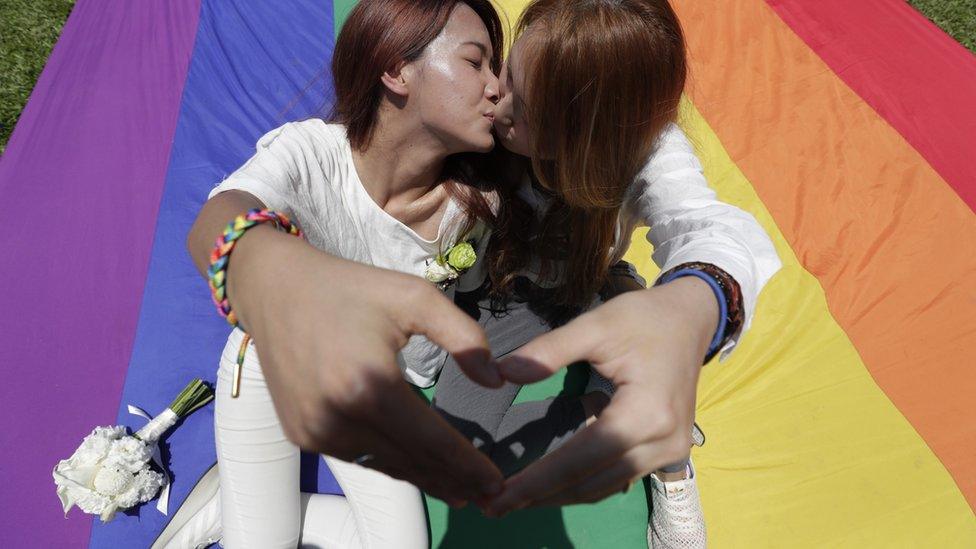Botswana to appeal ruling decriminalising homosexuality
- Published
What are the LGBT laws in Africa?
Botswana's government will appeal against a landmark High Court ruling that decriminalised homosexuality, the attorney general says.
Last month the court rejected colonial-era laws that imposed up to seven year jail terms for same-sex relationships, saying they were unconstitutional.
The ruling was viewed by many as a step towards improving LGBT rights in Africa.
But Attorney General Abraham Keetshabe said the judges had made a mistake.
"I have thoroughly read the 132-page-long judgment and I am of the view that the High Court erred in arriving at this conclusion," Mr Keetshabe said in a statement on Friday.
He added that he would take the case to the Court of Appeal, but did not give further details on the basis for the appeal.
The High Court ruling last month was reached unanimously by three judges.
"Human dignity is harmed when minority groups are marginalised," Judge Michael Elburu said at the time. "Sexual orientation is not a fashion statement. It is an important attribute of one's personality."
The case had been brought to court by a student who argued that society had changed and homosexuality was more widely accepted, and the ruling was celebrated by human rights groups and activists around the world.
Angola, Mozambique and the Seychelles have all scrapped anti-homosexuality laws in recent years.
But laws outlawing same-sex relations still exist in many African countries, and it is punishable by death in northern Nigeria, Sudan, Somalia and Mauritania.
In May, Kenya's High Court ruled against overturning a law banning gay sex.
- Published6 July 2019

- Published11 June 2019

- Published20 June 2019

- Published29 May 2019
